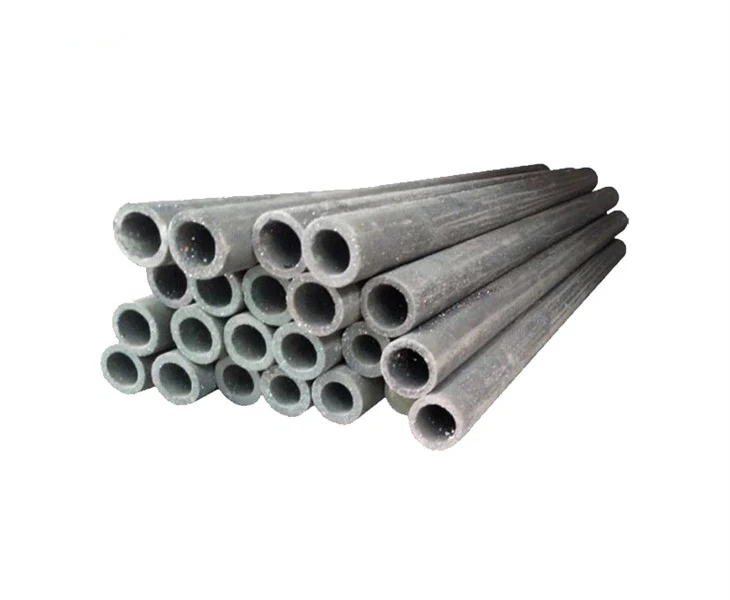
Parameters of Silicon Carbide Roller
| Items | Recrystallized SiC | Sintered SiC | Reaction Bonded SiC |
|---|---|---|---|
| ω(SiC)/% | 99.50% | 98% | > 88% |
| Max Working Temperature/°C | 1650 | 1550 | 1300 |
| Bulk Density(g/cm3) | 2.7 | 3.1 | > 3 |
| Apparent Porosity/% | < 15% | 2.5 | 0.1 |
| Bending Strength/MPa | 110 | 400 | 380 |
| Compressive Strength/MPa | >300 | 2200 | 2100 |
| Thermal Expansion | 4.6(1200℃) | 4.0(<500℃) | 4.4(<500℃) |
| Thermal Conductivity (W/m·K) | 35~36 | 110 | 65 |
Advantages of Silicon Carbide Roller Rods
High Strength: Silicon carbide rods have high hardness and strength, making them suitable for high-load conveying environments.
Good Thermal Shock Resistance: Their performance remains unaffected during prolonged rapid temperature changes.
High-Temperature Resistance: They can withstand temperatures up to 1650°C and operate stably over long periods in high-temperature conditions.
Corrosion Resistance: They maintain stable performance even in environments with strong oxidative atmospheres.
Excellent Thermal Conductivity: Their thermal conductivity ranges from 35 to 110 W/m·K. This allows for rapid heat dissipation.
Wide Applications of SiSiC Silicon Carbide Roller Rods
SSIC silicon carbide roller rods are primarily used in the ceramics, metallurgy, glass, and petrochemical industries. They mainly serve the functions of supporting and conveying materials in these kilns. This product is different from silicon carbide tubes.